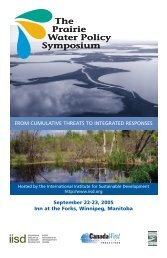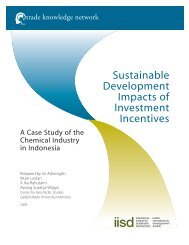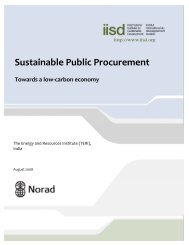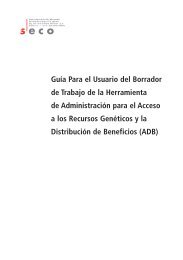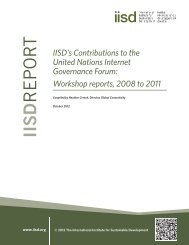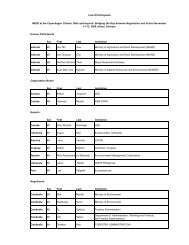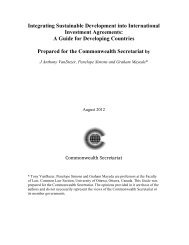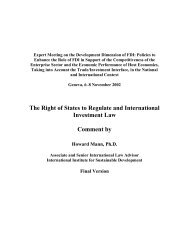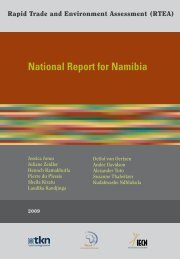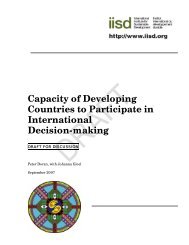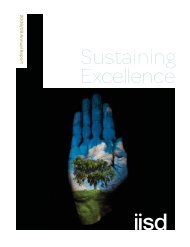Manitoba Climate Change Task Force - International Institute for ...
Manitoba Climate Change Task Force - International Institute for ...
Manitoba Climate Change Task Force - International Institute for ...
Create successful ePaper yourself
Turn your PDF publications into a flip-book with our unique Google optimized e-Paper software.
18<br />
MCCTF Report 2001 — <strong>Manitoba</strong> and <strong>Climate</strong> <strong>Change</strong>: Investing in our future<br />
Manufacturing and Technology<br />
<strong>Manitoba</strong>’s diverse manufacturing and industrial sector can anticipate a future<br />
in which prices <strong>for</strong> fossil fuels will be higher and cooling costs will rise in<br />
response to warmer ambient temperatures. Greater incidence of severe weather<br />
events, and the general uncertainty surrounding the long-term impacts of<br />
climate change, will increase investment and insurer risk. The competitiveness<br />
of some industries may be reduced in response to climate change impacts in<br />
other regions and countries.<br />
Goods produced in <strong>Manitoba</strong> with clean hydroelectric power may prove to have<br />
a competitive advantage in the emerging global economy that is sensitive to<br />
imbedded greenhouse gas emissions in products. Markets <strong>for</strong> “clean” technology<br />
may open and expand, such as in the area of hybrid/alternative fuel technology.<br />
Demand <strong>for</strong> energy efficient products is also likely to increase. <strong>Manitoba</strong> is<br />
well placed to respond to these changing market conditions due to the presence<br />
of established businesses such as the Kraus Group, New Flyer Industries,<br />
Mohawk and Loewen Windows. Other <strong>Manitoba</strong> companies could benefit from<br />
participating in a national emissions trading system.<br />
Health and Welfare<br />
The impact of climate change on individual <strong>Manitoba</strong>ns could range from<br />
health issues through socio-cultural effects to impacts on recreational activities.<br />
Health-related impacts include higher incidence of heat stress and allergies, as<br />
well as vulnerability to new diseases and pests. First Nations communities will be<br />
particularly affected by changes to, or the loss of, traditional ways of life. Winter<br />
sports lovers will have to cope with melting outdoor hockey rinks and the<br />
increasing need to cool indoor rinks. Cottage owners may be faced with flooding<br />
from heavy spring rains on still frozen lakes, followed by dramatically reduced<br />
water levels in the summer.



